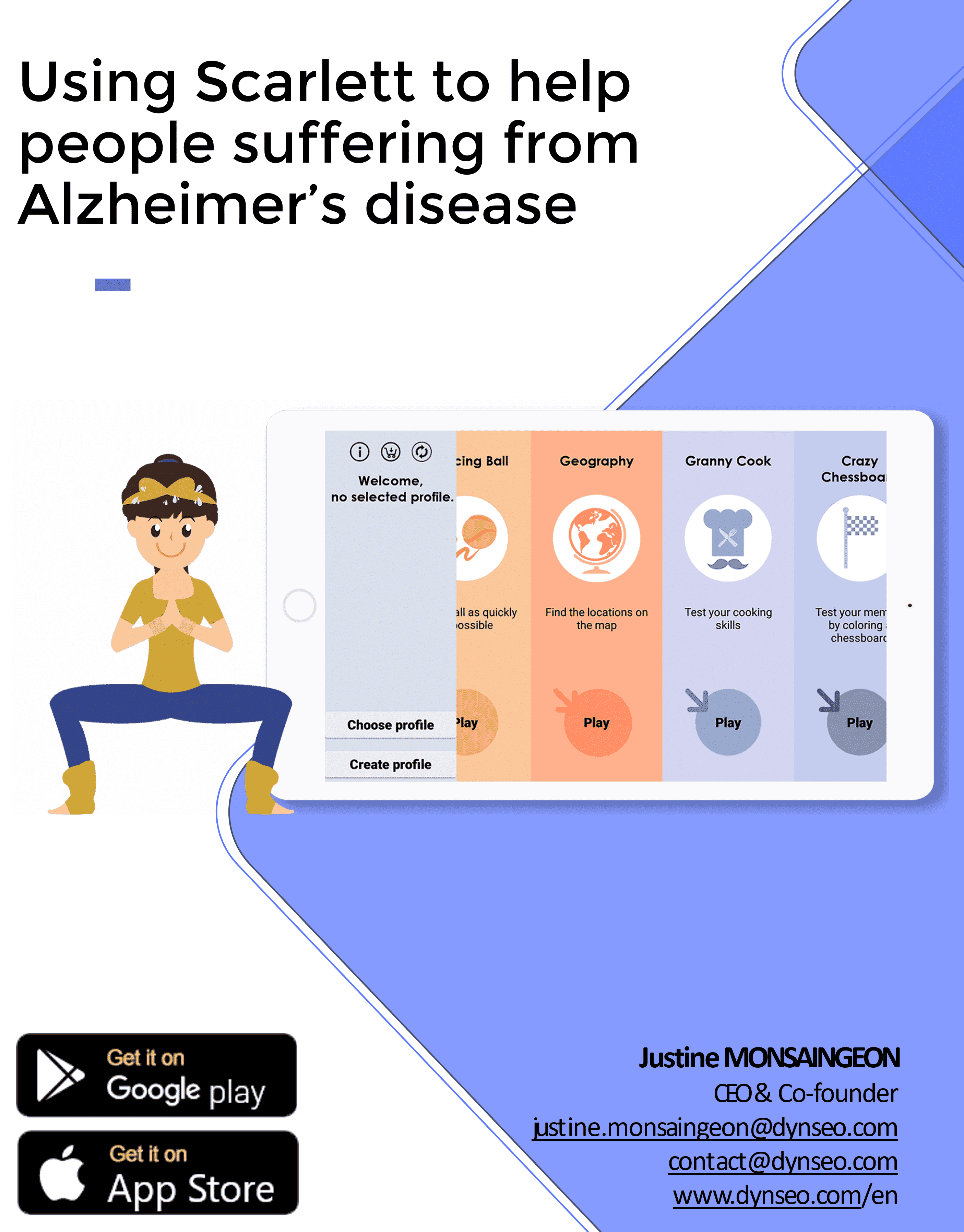In recent years, the landscape of cognitive rehabilitation has evolved significantly, largely due to the advent of technology. Cognitive rehabilitation apps are designed to assist individuals in improving their cognitive functions, such as memory, attention, and problem-solving skills. These applications leverage interactive and engaging formats to provide users with exercises that stimulate their brains.
By utilizing various techniques, these apps can cater to a wide range of cognitive impairments, making them valuable tools for both healthcare professionals and patients alike. As we delve deeper into the world of cognitive rehabilitation, we find that these apps not only offer a means of therapy but also foster a sense of independence and empowerment among users. The rise of cognitive rehabilitation apps has been particularly beneficial for populations such as seniors, stroke survivors, and children with developmental disorders.
These applications often incorporate gamification elements, which can make the rehabilitation process more enjoyable and less daunting. By transforming traditional therapeutic exercises into engaging games, users are more likely to remain motivated and committed to their cognitive improvement journey. Furthermore, the accessibility of these apps allows individuals to practice their skills at their own pace and in the comfort of their own homes, thus breaking down barriers that may have previously hindered their progress.
Benefits of Cognitive Rehabilitation Apps for Alzheimer’s Patients
For individuals living with Alzheimer’s disease, cognitive rehabilitation apps can serve as a lifeline, providing essential support in managing their symptoms. One of the primary benefits of these applications is their ability to enhance memory retention and recall. Through targeted exercises that focus on memory training, users can engage in activities that challenge their cognitive abilities while simultaneously reinforcing neural pathways.
This consistent practice can lead to improved memory function over time, which is crucial for maintaining a sense of identity and connection to loved ones. Moreover, cognitive rehabilitation apps can help alleviate feelings of isolation that often accompany Alzheimer’s disease. Many of these applications are designed with social features that allow users to connect with family members or caregivers during their exercises.
This interaction not only fosters a sense of community but also encourages meaningful conversations about memories and experiences. By integrating social elements into cognitive rehabilitation, we can create an environment where Alzheimer’s patients feel supported and understood, ultimately enhancing their overall quality of life.
Features to Look for in Cognitive Rehabilitation Apps

When selecting cognitive rehabilitation apps for Alzheimer’s patients, it is essential to choose tools that are designed to maximize effectiveness while addressing the unique challenges faced by this population. Below are key features that ensure an app is suitable for cognitive rehabilitation:
1. User-Friendliness and Accessibility
For Alzheimer’s patients, the ease of use is paramount. The app should be intuitive, with a straightforward interface that allows seniors, regardless of their technological expertise, to navigate it with minimal difficulty.
- Simple Navigation: The app should have clear, well-labeled buttons and a minimalistic design to avoid confusion.
- Visually Appealing Design: High-contrast colors, large fonts, and clear icons can help individuals with visual impairments or cognitive difficulties.
- Clear Instructions: Easy-to-understand instructions guide the user throughout the process, reducing frustration and ensuring they feel confident using the app.
2. Customizable Difficulty Levels
To cater to the individual needs of Alzheimer’s patients, the app should allow for adjustable difficulty settings. These features enable users to progress at their own pace, avoiding overwhelming them with tasks that are too complex, while still providing opportunities to challenge themselves.
- Personalized Experience: Customizable settings let caregivers and therapists tailor activities based on the patient’s cognitive abilities, ensuring that each session is appropriately challenging without being discouraging.
- Gradual Progression: As users show improvement, difficulty levels can gradually increase, providing a sense of achievement and continuous engagement.
3. Variety of Cognitive Exercises
A well-rounded cognitive rehabilitation app should include exercises that target various aspects of cognitive function, ensuring a comprehensive approach to brain health.
- Memory Exercises: Activities that challenge short-term and long-term memory recall, such as matching games or puzzles, can help improve memory retention.
- Attention and Focus: Games designed to improve attention span and concentration can help address issues related to distractibility.
- Language Skills: Word games, vocabulary challenges, and sentence formation exercises are crucial for maintaining and improving language abilities.
- Problem-Solving Tasks: Activities that stimulate problem-solving and critical thinking promote cognitive flexibility and adaptability.
4. Progress Tracking and Feedback
Monitoring progress is essential for caregivers, family members, and healthcare providers. Cognitive rehabilitation apps should include progress-tracking features that provide valuable insights into the user’s improvements over time.
- Milestone Celebrations: The app can celebrate achievements, reinforcing the patient’s motivation and confidence.
- Insightful Data: Feedback and progress reports help caregivers and therapists adjust therapy goals, monitor the patient’s cognitive health, and identify areas that need more focus.
- Visual Feedback: Progress bars, charts, or graphs that show improvement can keep the user engaged and provide encouragement.
5. Therapeutic Variety and Engagement
Engagement is key to ensuring consistency in cognitive rehabilitation. A variety of activities helps maintain interest and prevent monotony, making rehabilitation sessions more enjoyable and less of a chore.
- Interactive Games: Gamified elements, such as points, rewards, or levels, can increase motivation to continue practicing.
- Dynamic Activities: Offering a range of exercises (e.g., visual, auditory, and interactive tasks) ensures users don’t get bored and that their brain is continuously challenged in different ways.
- Adjustable Time: The ability to adjust the duration of each exercise helps accommodate the patient’s attention span and energy levels.
6. Accessibility and Compatibility
Accessibility and compatibility with various devices ensure that the app can be used easily in a range of settings, whether at home or in a clinical environment.
- Device Compatibility: The app should work on multiple platforms (smartphones, tablets, or computers) to provide flexibility in how the patient engages with it.
- Offline Access: Some apps may offer offline features, which is helpful for users without consistent internet access.
How Cognitive Rehabilitation Apps Support Speech Therapy
Cognitive rehabilitation apps play a significant role in supporting speech therapy for individuals with communication challenges, including those recovering from strokes or dealing with neurodegenerative diseases. These applications often include exercises specifically designed to enhance language skills, such as vocabulary building, sentence formation, and comprehension tasks. By integrating these activities into a user-friendly format, we can create an engaging environment where individuals feel encouraged to practice their speech and language skills regularly.
Moreover, cognitive rehabilitation apps can complement traditional speech therapy sessions by providing additional practice opportunities outside of clinical settings. For instance, patients can use these apps at home to reinforce what they have learned during therapy sessions. This consistent practice is vital for solidifying new skills and promoting long-term retention.
Additionally, many apps offer feedback mechanisms that allow users to track their progress and identify areas for improvement, further enhancing the effectiveness of speech therapy interventions.
Examples of Effective Cognitive Rehabilitation Apps
Among the myriad of cognitive rehabilitation apps available today, our Scarlett app stands out as an exceptional resource for seniors dealing with Alzheimer’s disease. Designed specifically for this demographic, Scarlett offers a range of brain games that target memory enhancement and cognitive stimulation. The app’s user-friendly interface ensures that seniors can navigate it with ease while engaging in enjoyable activities that challenge their minds.
By incorporating elements of gamification, Scarlett transforms cognitive exercises into fun experiences that encourage regular use and sustained engagement. For post-stroke patients, our Clint app serves as an invaluable tool for cognitive rehabilitation. Clint focuses on improving attention, memory, and problem-solving skills through a variety of interactive games tailored to adult users.
The app’s design promotes gradual progression through increasingly challenging tasks, allowing individuals to build confidence as they enhance their cognitive abilities. By providing a structured yet flexible approach to rehabilitation, Clint empowers stroke survivors to take charge of their recovery journey while enjoying the process.
Incorporating Cognitive Rehabilitation Apps into Speech Therapy Sessions

Integrating cognitive rehabilitation apps into speech therapy sessions can significantly enhance the therapeutic experience for both patients and therapists. By utilizing these apps during sessions, therapists can provide immediate feedback and support while guiding patients through targeted exercises. This collaborative approach fosters a sense of teamwork between therapists and patients, creating an environment where individuals feel motivated to improve their skills.
Additionally, therapists can tailor app activities to align with specific goals outlined in treatment plans, ensuring that each session remains focused and productive. Furthermore, incorporating cognitive rehabilitation apps into therapy sessions allows for greater flexibility in addressing individual needs. For instance, if a patient struggles with particular language tasks during traditional therapy exercises, the therapist can seamlessly transition to an app that offers similar challenges in a different format.
This adaptability not only keeps sessions dynamic but also allows therapists to explore various strategies for promoting skill development. Ultimately, by embracing technology in speech therapy, we can create more engaging and effective treatment experiences for our patients.
Challenges and Considerations when Using Cognitive Rehabilitation Apps
While cognitive rehabilitation apps offer numerous benefits, there are also challenges and considerations that we must address when implementing them in therapeutic settings. One significant concern is the potential for over-reliance on technology at the expense of face-to-face interactions. While these apps can provide valuable support, it is essential to strike a balance between digital engagement and personal connections with caregivers or therapists.
Maintaining meaningful relationships is crucial for emotional well-being and overall recovery. Another challenge lies in ensuring that the content within these apps remains relevant and effective for diverse populations. As we know, each individual’s cognitive abilities and needs vary widely; therefore, it is vital for developers to continuously update and refine app content based on user feedback and emerging research in cognitive rehabilitation.
Additionally, accessibility must be considered; not all seniors or patients may have access to smartphones or tablets, which could limit the reach of these beneficial tools.
Future Developments in Cognitive Rehabilitation Apps for Alzheimer’s Patients
Looking ahead, we anticipate exciting developments in the realm of cognitive rehabilitation apps tailored specifically for Alzheimer’s patients. As technology continues to advance, we expect to see more sophisticated applications that incorporate artificial intelligence (AI) to personalize user experiences further. By analyzing individual performance data, these AI-driven apps could adapt exercises in real-time based on users’ strengths and weaknesses, providing a truly customized approach to cognitive rehabilitation.
Moreover, future developments may also focus on enhancing social connectivity within these apps. By integrating features that facilitate communication between users and their families or caregivers, we can create a more supportive environment for individuals living with Alzheimer’s disease. This emphasis on social interaction could help combat feelings of isolation while fostering meaningful connections that contribute positively to mental health and overall well-being.
As we continue to explore the potential of cognitive rehabilitation apps, we remain optimistic about their ability to transform lives and empower individuals on their journey toward improved cognitive health.
For those interested in cognitive rehabilitation tools, particularly for Alzheimer’s patients undergoing speech therapy, exploring various resources can be immensely beneficial. One such resource is a detailed article on brain training programs, which can complement speech therapy by enhancing overall cognitive function. You can read more about these programs and their potential benefits for Alzheimer’s patients by visiting Programmi di Allenamento del Cervello. This article provides insights into how structured cognitive exercises can support the maintenance and improvement of cognitive health, which is crucial for effective speech therapy in Alzheimer’s patients.



